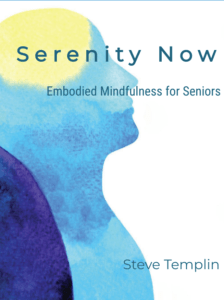I’ve written about how we’re often mistaken about the source of our chronic pain. While it’s natural to attribute pain to a structural abnormality like arthritic changes, or a damaged disc, more often than not this assessment of the source of pain is incorrect.
And, if the assessed cause of the pain is off the mark, treatment is unlikely to be successful in the long term.
Because treatment that focuses on painful body parts is so often ineffective, sufferers are routinely prescribed addictive, pain-relieving drugs. These drugs are now the number one cause of preventable death in the U.S.
In a recent post, The New Medicine is Here, I shared a study showing that mind-body interventions were more effective than symptom treatment and usual care for chronic back pain and other illnesses.
The mind-body protocols from NYU’s Dr. John Sarno, Mass General’s Jon Kabat-Zinn, Ph.D., and my own clinical experience have confirmed that a mind-body approach can be successful when all else hasn’t.
A new study from King’s College in London is suggesting that chronic pain is a genetically programmed memory of an earlier injury.
The study’s main author, Dr. Franziska Denk, said “Our study is the very first step toward trying to answer this question by exploring the possibility that changes in chronic pain may persist because of epigenetics.”
What’s often obvious isn’t necessarily true. Wanting to focus therapy on an obviously painful area while ignoring the more hidden epigenetic causation misses the mark.
You Control Your Genes
The thought of back pain or any other chronic malady being caused by genes might make us feel hopeless because we’ve been taught that our genes were beyond our control.
But this is really good news because the new science of epigenetics lets us know that we have a very real and powerful influence on the expression of our genes.
As Bruce Lipton, Ph.D. so eloquently shares with us, our genes are affected by our perception – our beliefs, expectations, and attitudes.
This is one likely reason why mind-body approaches to healing have been so successful.
My intention in sharing this information is to provide all of us with information that supports us in trusting and utilizing our own innate capacities for healing and wholeness.
This is no easy feat considering the past and ongoing onslaught of medical propaganda touting drugs as the real science while ignoring or dismissing the emerging science that validates the healing power of the human heart, mind, and focused conscious awareness.
Hopefully, this information supports you in being more trusting of and consistent with your chosen self-regulation practices.
Regards!

 Steve is a retired Doctor of Oriental Medicine, Acupuncture Physician, and HeartMath Trauma-Sensitive Certified Practitioner with over 35 years of clinical experience in the fields of Energy Medicine, Energy Psychology, and Biofeedback.
Steve is a retired Doctor of Oriental Medicine, Acupuncture Physician, and HeartMath Trauma-Sensitive Certified Practitioner with over 35 years of clinical experience in the fields of Energy Medicine, Energy Psychology, and Biofeedback. 